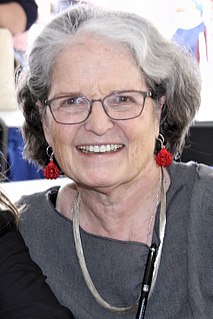A Quote by Kenneth E. Boulding
[There will be movement toward] behavioral economics... [which] involves study of those aspects of men's images, or cognitive and affective structures that are more relevant to economic decisions.
Related Quotes
The MeToo movement has made everyone more professional. The trashy aspects of filmmaking are now eliminated. There is certainly fear and caution among those men who think they can get away with any behaviour. At the same time, we have to be careful about not overdoing the enthusiasm of the MeToo movement.
When people are running up more and more debt for housing, they call that "real wealth." It exposes what's wrong in the mainstream economics and why most of the economics that justifies austerity programs and economic shrinkage is in the textbooks is not scientific. Junk economics denies the role of debt and denies the fact that the economic system we have now is dysfunctional.
This is a timely and relevant initiative. The environmental challenges facing Singapore and the region are becoming more complex. Tackling them will require inter-disciplinary approaches combined with a good understanding of science, economics and governance aspects. The NUS Bachelor of Environment programme will fill a much needed gap in the current framework. NEA is pleased to be a partner to this programme.
Society's double behavioral standard for women and for men is, in fact, a more effective deterrent than economic discrimination because it is more insidious, less tangible. Economic disadvantages involve ascertainable amounts, but the very nature of societal value judgments makes them harder to define, their effects harder to relate.
I started in the law; and the study of law, when it precedes the study of economics, gives you a set of foundation principles about how human beings interact. Economics is very useful, and I studied economics in graduate school. But without understanding the social and organizational context of economics, it becomes a theory without any groundwork.
The only truly new ideas [the right] has come up with in the last twenty years are (1) supply side economics, which is a way of redistributing the wealth upward toward those who already have more than they know what to do with, and (2) creationism, which is a parallel idea for redistributing ignorance out from its fundamentalist strongholds to those who know more than they need to.
My feeling is that a human being or any complex organism has a system of cognitive structures that develop much in the way the physical organs of the body develop. That is, in their fundamental character they are innate; their basic form is determined by the genetic structure of the organism. Of course, they grow under particular environmental conditions, assuming a specific form that admits of some variation. Much of what is distinctive among human beings is a specific manner in which a variety of shared cognitive structures develop.
Protestant parents still keep a Bible handy in the house, so that the children can study it, and one of the first things the little boys and girls learn is to be righteous and holy and not piss against the wall. They study those passages more than they study any others, except those which incite to masturbation. Those they hunt out and study in private.

































